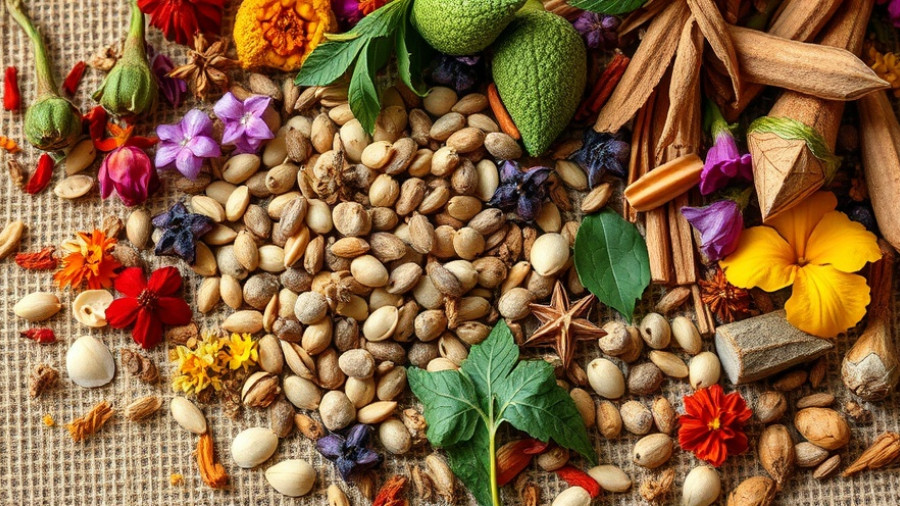
Exploring the Essence of Herbal Energetics
In a world captivated by rapid scientific advancements, the ancient wisdom of herbal energetics offers a refreshing perspective on natural health. Rooted in diverse cultural traditions, herbal energetics serves as a bridge between the natural properties of plants and their effects on the human body. Imagine the warmth that ginger tea brings contrasted by the soothing relief of marshmallow tea; here lies the foundational principle of herbal energetics in action.
The Four Pillars of Herbal Energetics
The concept of herbal energetics revolves around four primary qualities: hot, cold, moist, and dry. These descriptors, while seemingly simple, hold profound significance in herbal practice. Traditionally, herbs are classified based on how they impact our body's temperature and moisture levels, allowing for tailored herbal applications. Understanding these properties helps practitioners determine the most suitable herbs for an individual's unique constitution.
Warming Herbs: Circulation and Balance
Warming herbs, such as ginger and cayenne, stimulate circulation and counteract conditions associated with coldness. They can be particularly beneficial during colder months or for individuals with constitutionally cold, stagnant energies. Incorporating these herbs into daily routines not only enhances physical warmth but also ensures the circulation of vital energy throughout the body, promoting overall well-being.
Cooling Herbs: Counteracting Heat
Conversely, cooling herbs like aloe and hibiscus provide relief from heat, creating balance within the body's energetics. With the rising global temperatures and increased exposure to the sun, knowing how to use cooling herbs can be vital. Such herbal interventions can soothe skin irritations or internal heat, making them essential in any herbalist's toolkit.
Drying Herbs: Addressing Excess Moisture
When facing issues related to excess moisture, such as phlegm or swollen tissues, drying herbs like burdock and yarrow can offer relief. Recognizing when to incorporate drying herbs into one’s regimen can make a significant difference in addressing various health conditions, particularly during cold and damp seasons.
Moistening Herbs: Hydration and Repair
In contrast, moistening herbs are crucial for those dealing with dry, irritated tissues. Herbs like licorice and marshmallow work to hydrate and soothe the body, specifically beneficial during low-humidity months or for those with naturally dry constitutions. They play a pivotal role in achieving the emotional balance and comfort often lost in our fast-paced lives.
Beyond Herbal Classification: A Holistic Perspective
Herbal energetics is not merely about classifying herbs; it delves deeper into understanding how these plants interact with each person's unique constitution and current health status. The convergence of traditional philosophies, such as Ayurvedic principles, enrich our understanding. Ayurveda recognizes the specific tendencies and elemental characteristics that exist within each body, offering a scientific yet holistic approach to health through herbal interventions.
Ancient Wisdom Meets Modern Applications
Despite advances in medical research, the principles of herbal energetics persist as a guiding light in holistic health practices. As more people gravitate toward natural remedies, the application of herbal energetics in modern herbalism becomes ever more relevant. Herbalists today can apply these age-old techniques to fine-tune their healing practices, selecting herbs that resonate with the individual rather than just the condition at hand.
The Value of Understanding Herbal Energetics
For health enthusiasts and practitioners alike, grasping the basics of herbal energetics is invaluable. It enriches your approach to wellness by harmonizing the energies of the body, mind, and spirit with those of nature. Empower yourself with knowledge about herbal energetics, explore its myriad of applications, and find harmony in the healing power of plants.
Understanding herbal energetics unlocks the potential to choose remedies that are not only effective but also personal and tailored. By appreciating the context of your body and your needs, you are better prepared to make informed decisions about your health.
 Add Row
Add Row  Add
Add 



Write A Comment